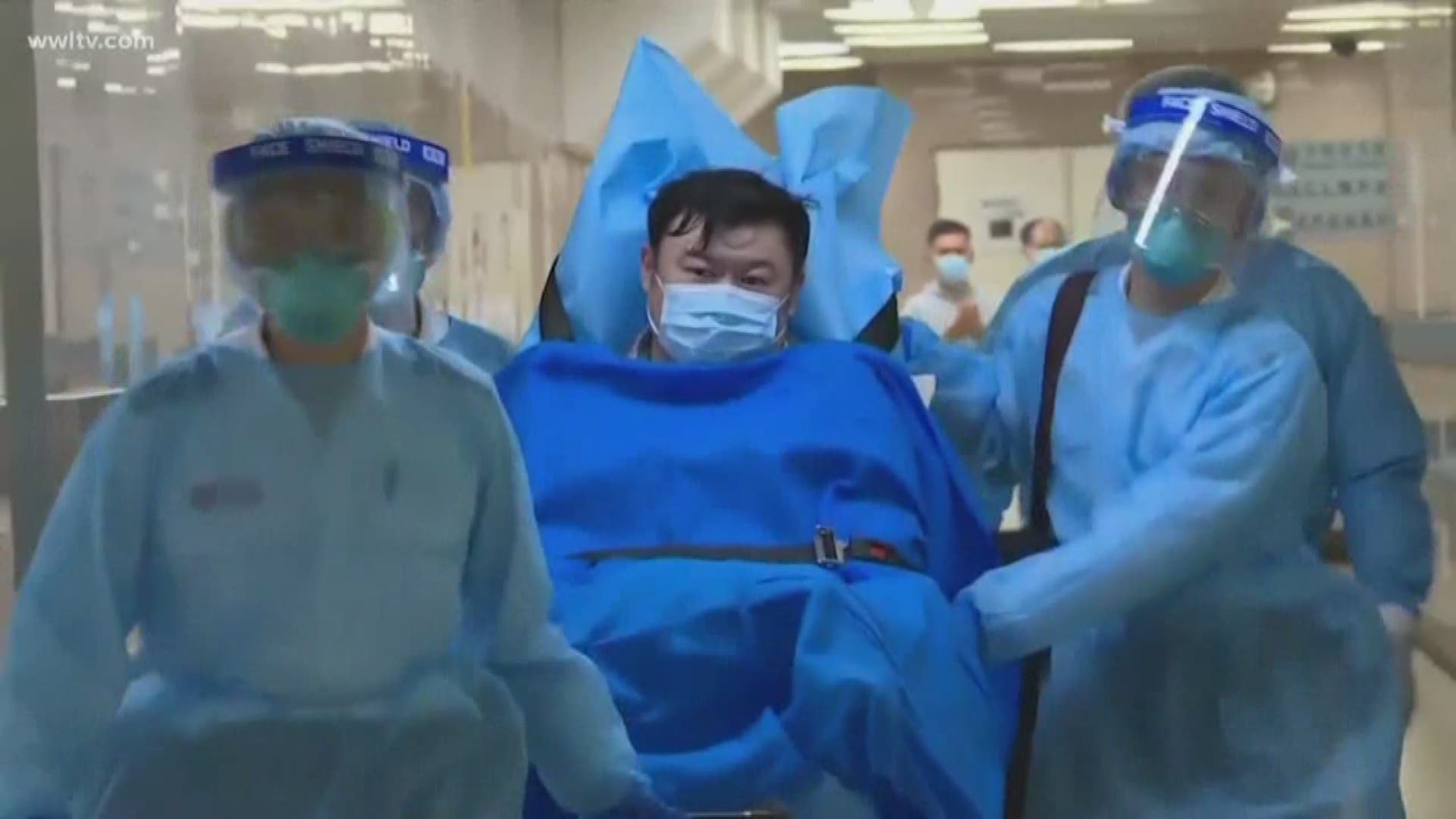NEW ORLEANS — While there are no cases of that new coronavirus in the New Orleans area, a local team of global medicine doctors is joining the world response.
While the CDC says the risk of being infected while in the U.S. is low, there is another medical concern. And it's one that you can prevent.
The CDC says while the new strain of coronavirus in China is potentially a very serious public health threat, Americans should not worry for their own safety.
"The CDC has reported five cases of the novel coronavirus here in the United States. China has now reported more than 4,500 cases," said U.S. Secretary of Health and Human Services, Alex Azar.
Twenty airports now have screening sites for sick people. That is up from five.
Tulane School of Public Health's Dr. Lina Moses is ready to be on the front lines, gathering information on how the new virus is spread and how long it takes an infected person to get sick. She leaves for Geneva this week. At the World Health Organization headquarters, she will lead research for global outbreak alert and response network.
"I've been trained to protect myself as much as possible. I also keep in mind there are communities now that have much less training than me, that are facing much more dire circumstances," said Dr. Moses, a Tulane Assistant Professor in the School of Public Health and Tropical Medicine.
Her Tulane colleague, Dr. David Mushatt, says they practice safety measures regularly to protect students, staff and medical faculty.
"And that's a big deal because we do have some students and faculty who have been in China, who have returned or who will be going in the near future," said Dr. Mushatt, a Tulane Associate Professor of Medicine and Section Chief.
But those Tulane students and faculty may not be able to go to China since the U.S. State Department is warning against non-essential travel there.
Still, local infectious disease experts are more concerned about the flu. Last season, in Louisiana alone, it killed 1,400 people, according to the Louisiana Department of Health.
"That's the number one priority. Get your flu shot, so that you don't get sick and don't end up in the hospital with influenza. And we may be looking at the second wave of influenza this season," said Dr. Mushatt.
And if you're sick with flu, it would be harder to fight off the new virus, if you're exposed.
There are no medications to treat the new coronavirus, and doctors say it could be months before there is a vaccine to protect against it.
► Get breaking news from your neighborhood delivered directly to you by downloading the FREE WWL-TV News app now in the IOS App Store or Google Play.

